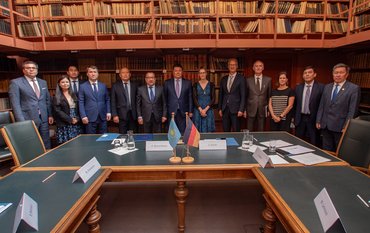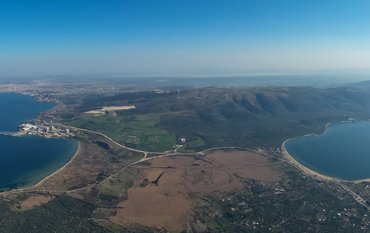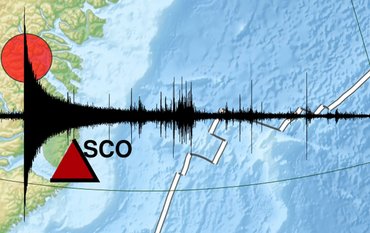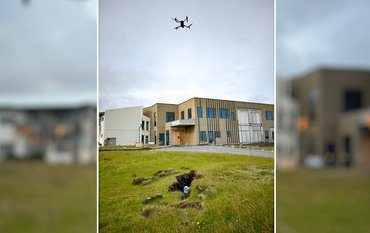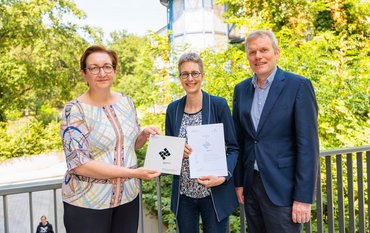Original Text: 4 May 2020
Work at GFZ German Research Centre for Geosciences is to continue primarily from home office. This has been communicated to the staff members by the GFZ Executive Board. The reason is the still prevailing necessity to slow down the spread of the corona virus SARS-CoV-2. At the same time, research activities are to be restarted gradually. For this purpose, the Crisis Management Team of GFZ has presented a concept that provides for "restricted presence". As has been the case up to now, activities on the Telegrafenberg campus or in branch offices are, thus, only possible in exceptional cases and after prior consultation with superiors.
The Executive Board has asked all researchers and technical staff members to resume only necessary laboratory and field work. A detailed “operating plan” has to be submitted for approval by the safety engineer in the case of laboratories and workshops that are scheduled to restart operation. Infection prevention measures play a decisive role in this respect. This also applies to field work that cannot be postponed, for example in cases where instruments have to be maintained or seasonal measurements have to be taken. Travel abroad is still not possible, domestic travel is only possible with special attention to infection prevention measures. By the end of last week, corresponding operating plans had been approved for almost one third of the laboratories and workshops at GFZ.
Irrespective of this, there are a number of important services that GFZ provides on a permanent basis for science and society. These include global earthquake monitoring via the GEOFON network and its contribution to many early warning systems worldwide. A further service is the provision of the kp-Index. This was developed to measure the particle radiation of the sun by means of its magnetic effects. Today, it is regarded as an indication of the energy input from the solar wind into the Earth system. Also of central importance are several "satellite services", especially those required for the functioning of navigation systems (Global Navigation Satellite Systems, GNSS). GFZ is one of ten global analysis centres. The satellite orbits, station coordinates and Earth rotation parameters continuously determined from the data are essential for navigation and positioning on Earth and in space, and are the basis for a wide range of social and economic activities. Failure of one or more analysis centres can have critical consequences.
GFZ also contributes to weather forecasting through daily, globally distributed GNSS radio occultation (RO) measurements. Put simply, signals from satellites such as TerraSAR-X and Tandem-X are used to measure the water vapor content of the atmosphere. The data obtained are sent to national and international weather services.
The Scientific Executive Director and Chairman of the Board at the GFZ, Reinhard Hüttl, explains: "The occurrence of this infection will continue to influence our work for a long time to come, but we ourselves have it in our hands to make our contribution to improving the situation". As the director of this large research centre, he states that one can only create a framework "that helps everyone to cope with the current situation and that, at the same time, serves to restart operations at the GFZ on a gradual basis". For GFZ this means that work will remain in "restricted presence operation" for the time being. (jz)




![[Translate to English:] [Translate to English:] Abror Gafurov von dem Schriftzug "Welcome to Azerbaijan" und den UN und COP Logos](/fileadmin/_processed_/2/5/csm_2024_11_Baku_COP29_Abror_Gafurov_1042faec82.jpeg)


![[Translate to English:] Martin Herold standing in front of the library on the Telegrafenberg](/fileadmin/_processed_/c/d/csm_Martin_Herold_d385ee4dd9.jpeg)
![[Translate to English:] Many people are listening to a presentation in the GFZ lecture hall.](/fileadmin/_processed_/c/a/csm_1_Bild1_hell_b9c0e9f5ed.jpeg)






![[Translate to English:] Both scientists sitting on stools in front of a wall of books in the Telegrafenberg library](/fileadmin/_processed_/6/6/csm_Buiter_Castell_DORA_4_e87cb1ea18.jpeg)
![[Translate to English:] Gruppenbild mit 4 Personen](/fileadmin/_processed_/8/d/csm_20241017_GFZ-Emmerman-Medal-005_web_reinhardtundsommer_21a414fa4a.jpeg)






![[Translate to English:] Ice landscape with five red tents](/fileadmin/_processed_/8/9/csm_Zeltlager_auf_dem_Eis_Urheberin_Jenine_McCutcheon_5ced2d523b.jpeg)



